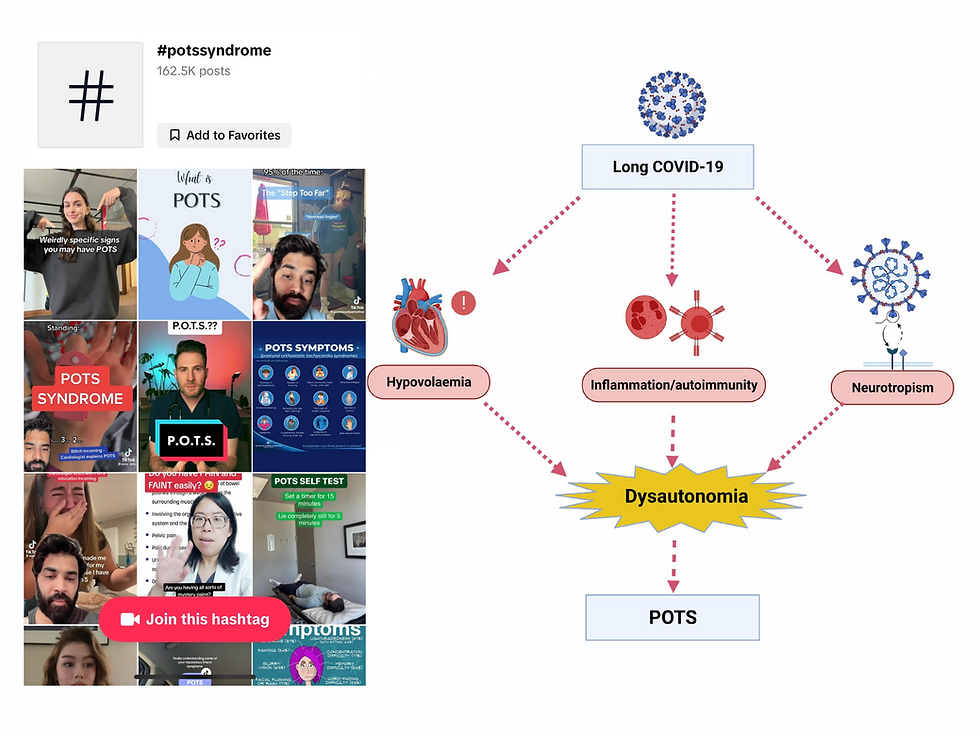POTS: The Unknown Illness
- Emily Yoon

- Jul 6, 2025
- 2 min read

For many adolescents, this period of youth is reserved for self-discovery and time to explore interests with friends. However, this critical phase is heavily disrupted by Postural Orthostatic Tachycardia Syndrome (POTS), a chronic and often debilitating condition. The physical symptoms, such as autonomic dysfunction, profound fatigue, tachycardia, and restriction of daily activities, confine them to their homes or beds. This persistent illness represents a cruel reality for countless young individuals (though not limited to them).
A critical concern arises from the frequent occurrence of POTS by medical professionals, particularly given its complex symptom breakdown that can mimic other conditions. My initial awareness of this diagnostic challenge stemmed from a public discussion on the TikTok social media platform, highlighting the perceived neglect of POTS within the medical community. Consequently, adolescents who eventually receive a POTS diagnosis often experience severe mental health illnesses. They face social isolation, the loss of typical adolescent opportunities, and a continuous struggle against anxiety and depression, which collectively define their silent battle.
Furthermore, a compelling link has been found between the diagnosis of POTS in teenagers and the recent COVID-19 pandemic, leading to a rise in what is termed COVID-induced POTS. Research from esteemed institutions like the National Institutes of Health and Johns Hopkins Medicine indicates a significant increase in POTS cases following COVID-19 infections, with some estimates suggesting a fivefold rise. While global prevalence remains unclear, current estimations suggest between 500,000 and 3,000,000 individuals are affected by POTS within the United States alone. A notable proportion of individuals report POTS-like symptoms post-COVID-19, with studies indicating that over half of long-term COVID patients exhibit signs of autonomic dysfunction, including those consistent with POTS. This condition necessitates urgent attention, as it represents a significant and often unacknowledged source of suffering for the current generation. The potential for such an outcome was a concern following the long-term effects of the COVID-19 pandemic, and it is now imperative that we address the needs of these adolescents who struggle with both the physical and mental health challenges of POTS.
References
“Covid-19 and Pots: Is There a Link?” Johns Hopkins Medicine, 8 Jan. 2025, www.hopkinsmedicine.org/health/conditions-and-diseases/coronavirus/covid19-and-pots-is-there-a-link#:~:text=Will%20my%20condition%20worsen?,19%20infection%2C%E2%80%9D%20Chung%20says.
Mallick, Deobrat, et al. “Covid-19 Induced Postural Orthostatic Tachycardia Syndrome (POTS): A Review.” Cureus, U.S. National Library of Medicine, 31 Mar. 2023, pmc.ncbi.nlm.nih.gov/articles/PMC10065129/.




Comments